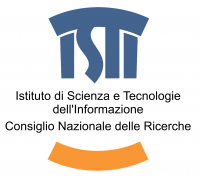Kay Kohlmeyer, Arian Goren, Arie Kai-Browne
Tremendous efforts and funding were given in recent years to ensure proper archiving and accessibility of digitally acquired assets intended to preserve human knowledge, educate current and future generations on past cultures and enrich the database driving archaeological research forward. These actions aspire ensuring the immortality of human artefacts, artefacts which potentially should – when push comes to shove – serve as means for restoring and reconstructing tangible objects, architecture, (cultures? people?) lost, stolen or damaged (for example as a result of civil and/or military conflicts, looting etc.). Packed under the broad umbrella of cultural and human heritage, a constantly surging number of professional individuals are engaged in increasingly growing number of initiatives dedicated to acquiring, managing, maintaining and showcasing continuously expanding body of archaeological knowledge in binary means. This rich assemblage of (in)tangibles, now hyper-divided into numerous specialised sub-fields and sub-projects, undergoes (ideally) a process of further classification, manipulation, and filtering by (potentially other) professional individuals, however ends as records aggregated in a (usually) notoriously large and complex archive hosted, catalogued and managed by an academic and/or a federal institution.
In this domain contradicting forces act. On the one hand stands an expanding demand from both researchers and institutions to ensure the transparency and accessibility of (digital) archaeological assets to as large as possible audience, realised also through engaging platforms based on computer games and virtual and immersive environments. On the other hand, the vast body of knowledge about human past is mitigated by choices and actions met by individuals inevitably operating under a certain set of perspectives, paradigms, and cultural codes, thus producing simulations which are inherently limited and limiting.
Can advanced platforms fulfil a claim of accessibility to knowledge and experience for all (e.g. laymen as well as specialists, physically or mentally disabled persons)? Can repositories of digital assets be considered objective and inclusive archives of cultural/human identities (e.g. the experience of disabled persons in past times, or as aids in cultural revival after civil war)? The aim of this session is to reflect on the ethical and theoretical aspects of digital, virtual, and cyber archaeology in the spectra of the multivocal, socially complex reality we deal with and live in, and raise discussion on issues concerning human heritage and the art of contextualising archaeological records in an immersive era.
Keywords: immersive archaeology, digital heritage, cultural archives, archaeological theory


